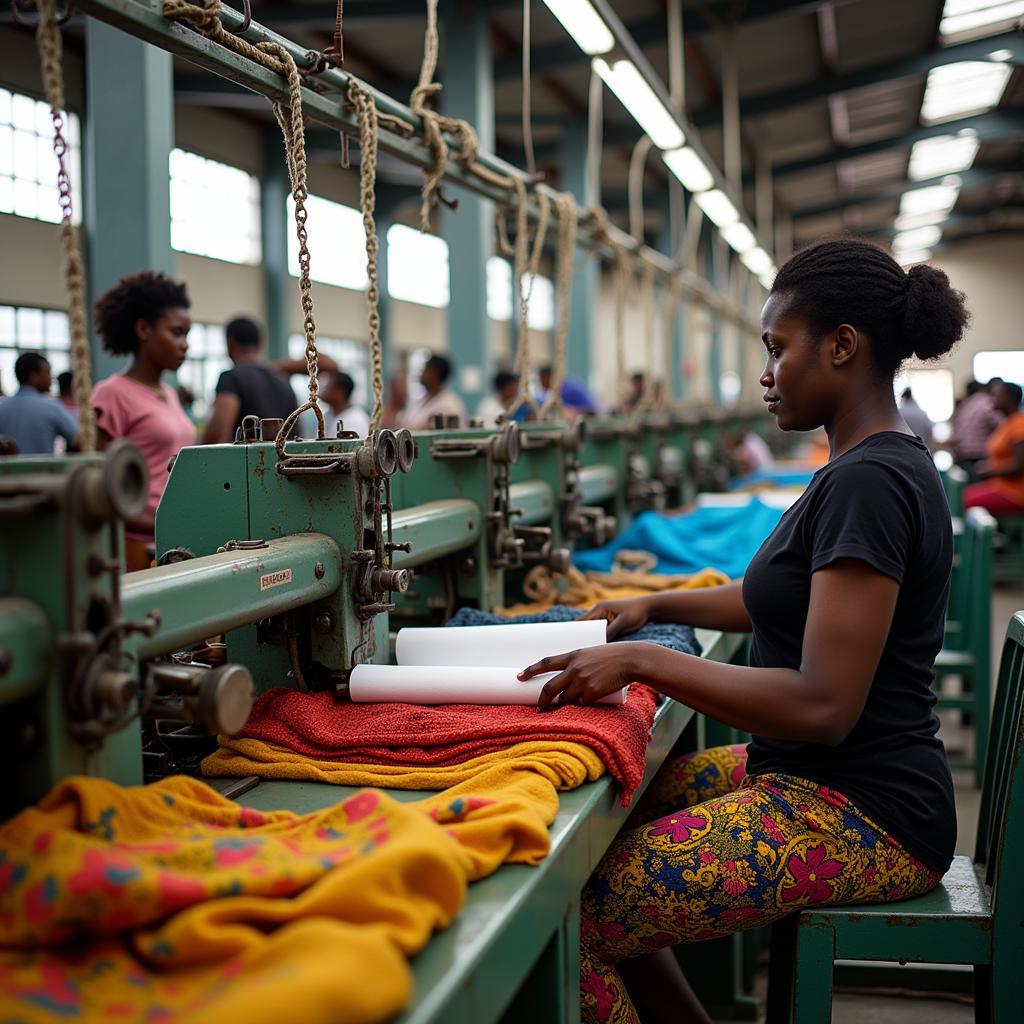Exploring the Vibrant Landscape of African Industries: Nigeria
Nigeria, the most populous nation in Africa, boasts a diverse and dynamic economy. Within its borders lies a burgeoning industrial sector, ripe with potential and poised for significant growth. This exploration of African industries in Nigeria will delve into the key sectors driving economic progress, the challenges faced, and the future outlook for this economic powerhouse.
Unveiling the Key Players: Major Industries in Nigeria
The Nigerian industrial landscape is multifaceted, encompassing a range of sectors contributing to the national GDP. Let’s examine some of the most prominent players:
1. The Powerhouse: Nigeria’s Oil and Gas Industry
Nigeria holds the position of Africa’s largest oil producer, and the oil and gas industry undeniably reigns supreme. It constitutes a significant portion of the country’s revenue and foreign exchange earnings. However, this reliance on oil also presents a vulnerability, as fluctuations in global oil prices can have a ripple effect throughout the Nigerian economy.
2. Cultivating Growth: Agriculture in Nigeria
Agriculture remains a cornerstone of the Nigerian economy, employing a substantial portion of the workforce and contributing significantly to food security. Key agricultural products include cocoa, rubber, and palm oil, which are also important export commodities. Despite its significance, the agricultural sector faces challenges such as limited access to modern farming techniques and infrastructure.
3. Building the Nation: Construction and Manufacturing in Nigeria
With a rapidly growing population and increasing urbanization, the construction and manufacturing industries are experiencing a surge in demand. From infrastructure development to consumer goods production, these sectors provide essential goods and services while creating employment opportunities.
 Textile Manufacturing in Lagos
Textile Manufacturing in Lagos
4. Connecting the Nation: Telecommunications in Nigeria
The telecommunications industry in Nigeria has witnessed exponential growth in recent years, with mobile phone penetration rates soaring. This sector plays a vital role in bridging the digital divide and fostering economic inclusion. The expansion of broadband internet access and mobile payment platforms is transforming how Nigerians communicate, conduct business, and access information.
Overcoming Obstacles: Challenges Facing African Industries in Nigeria
While the potential for industrial growth in Nigeria is immense, a number of challenges hinder progress:
- Infrastructure Deficit: Inadequate infrastructure, including unreliable power supply, insufficient transportation networks, and limited access to water resources, poses a significant obstacle to industrial expansion.
- Access to Funding: Obtaining financing for business ventures remains a considerable hurdle for many Nigerian entrepreneurs, particularly for SMEs.
- Bureaucracy and Corruption: Complex bureaucratic processes and instances of corruption can deter investment and stifle business growth.
- Skills Gap: A shortage of skilled labor in certain sectors necessitates investment in education and vocational training to equip the workforce with the necessary skills for a modern industrial economy.
 Nigerian Tech Start-Up
Nigerian Tech Start-Up
Looking Ahead: The Future of Nigerian Industries
Despite these challenges, the future of African industries in Nigeria appears promising. Several factors contribute to this optimistic outlook:
- Government Initiatives: The Nigerian government has implemented policies and initiatives aimed at diversifying the economy, attracting foreign investment, and promoting industrialization.
- AfCFTA Potential: The African Continental Free Trade Area (african continental free trade area nigeria) agreement presents a significant opportunity for Nigerian businesses to expand their reach and access new markets across the continent.
- Growing Consumer Market: With its large and youthful population, Nigeria boasts a rapidly expanding consumer market, providing a strong domestic demand base for locally manufactured goods and services.
- Technological Advancements: The rise of digital technologies and innovation is creating new possibilities for industrial growth, particularly in sectors such as fintech, e-commerce, and renewable energy.
Conclusion: Embracing the Potential of African Industries
Nigeria stands as a testament to the dynamism and potential of African industries. While challenges remain, the nation’s commitment to economic diversification, combined with a favorable demographic profile and the transformative power of technology, paves the way for a brighter future. As Nigeria continues to address its challenges and harness its strengths, it is poised to emerge as a true industrial powerhouse on the African continent.
FAQ: Frequently Asked Questions about Industries in Nigeria
1. What is the largest industry in Nigeria?
The oil and gas industry remains the largest in Nigeria, accounting for a significant portion of the country’s GDP and export earnings.
2. What are the fastest-growing industries in Nigeria?
The telecommunications, technology, and renewable energy sectors are experiencing rapid growth in Nigeria, driven by factors such as increasing mobile phone penetration, technological advancements, and a growing demand for clean energy solutions.
3. What are some of the challenges faced by businesses in Nigeria?
Businesses in Nigeria often face challenges related to inadequate infrastructure, limited access to funding, bureaucratic hurdles, and a shortage of skilled labor.
4. What is the role of the government in promoting industrial growth?
The Nigerian government plays a crucial role in fostering industrial growth through policies aimed at attracting foreign investment, improving infrastructure, and supporting the development of key sectors.
5. What is the outlook for the future of Nigerian industries?
Despite existing challenges, the outlook for Nigerian industries remains positive, driven by a large and growing consumer market, government initiatives to diversify the economy, and the potential of the AfCFTA.
Need Assistance with Your Business in Africa? Contact us today for expert guidance and support. Phone: +255768904061 Email: [email protected] Location: Mbarali DC Mawindi, Kangaga, Tanzania. Our dedicated team is available 24/7 to assist you.
